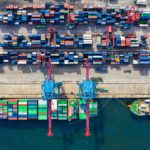To fix the shilling, fix the fundamentals
The Kenya shilling is at record lows; interest rates are rising to crippling levels; inflation is bedevilling the common mwananchi; the IMF are back in town; everyone’s pricing in dollars. Did I just wake up in the Nyayo Nineties?
We are supposed to be done with the voodoo economics of our past. The post-Kanu era is supposed to be one of prudent economic management, fiscal responsibility and self-reliance. So what happened?
The shilling is amongst the world’s worst performing currencies this year. It is the talking point on everyone’s lips. Kenyans are not short of reasons for the shilling’s collapse, and you can take them with as many pinches of salt as you like. One school of thought, fronted by our leaders, is that this is a purely external phenomenon: that global oil prices, Eurozone woes and the like are the primary causes. “It-ain’t-our-fault-honest”, in other words. That reasoning does not explain why we should beat pretty much every other country in collapsing our currency.
Another school of thought comes from conspiracy theorists, who in Kenya tend to be peculiarly common. On this reckoning, we have need look no further than our avaricious big banks who will declare bumper profits from currency speculation, sorry dealing. And because next year is an election year, who knows who is in cahoots with whom to raise campaign funds…
Because our theories are rather infantile, we are also coming up with some jejune remedies. Tame the big banks! Let government buy and sell currency directly! Ban electronic trading! Create parallel currency markets! Send an SOS to the IMF! Be patriotic, buy Kenyan! Now that set of measures would really take us back to the nightmarish nineties – and we know how that era ended.
Deeper thinking is needed. Why does a currency weaken? Because demand for it is weaker than its supply. The price of a currency is driven by trade and investment flows. For years, Kenya has failed to export more than it imports. It is woefully dependent on oil, vehicles, machinery, equipment and consumer items from abroad. And it has abjectly failed to expand its export base beyond agri-products and tourism – same old, same old.
As things stand, our exports can barely cover our imported oil bill. So we are left dependent on capital inflows – remittances, foreign investment, aid flows and the like – which are notoriously fickle. It is no wonder that the currency is unstable.
Add to that the following: we are a country unable to curb astonishing fiscal excesses (like convoys of vehicles and palatial homes for leaders); we lose billions every year to one corruption scam after another (and our anti-corruption efforts are comically inept); we have a chronically unstable northern neighbour that exports terrorism; and our political campaigns cost untold billions more than they need to because votes must be bought and funds raised by any means. Where will stability come from, with all that in the mix?
If we want sanity in the shilling, we must fix the fundamentals. Our exporters have to start having the ambition to think like innovative world-beaters, not tired old home-boys; our successive governments have to give us world-class infrastructure and connectivity; and our people have to finally excise the cancer of corruption from the body Kenyan, whatever it takes.
Life as a nation in the globalized 21st century is all about competitiveness. That comes from our people, their knowledge and their productivity. We are great at raising a hue and cry about all and sundry, but awful at addressing fundamentals. Those fundamentals concern our ability to be compete on cost and compete on innovation. We have to be a nation that has the leaders, infrastructure and ideas to stand with the best.
Otherwise we are condemned to continue the economics of boom and bust.

Buy Sunny Bindra's new book
The X in CX
here »
Popular Posts
- The pause that saves usJune 8, 2025
- The first push is the hardestJune 1, 2025
- How to spot a real thinkerJune 15, 2025
- Built the app, forgot the flowJune 22, 2025
- How to ruin what you loveMay 25, 2025















